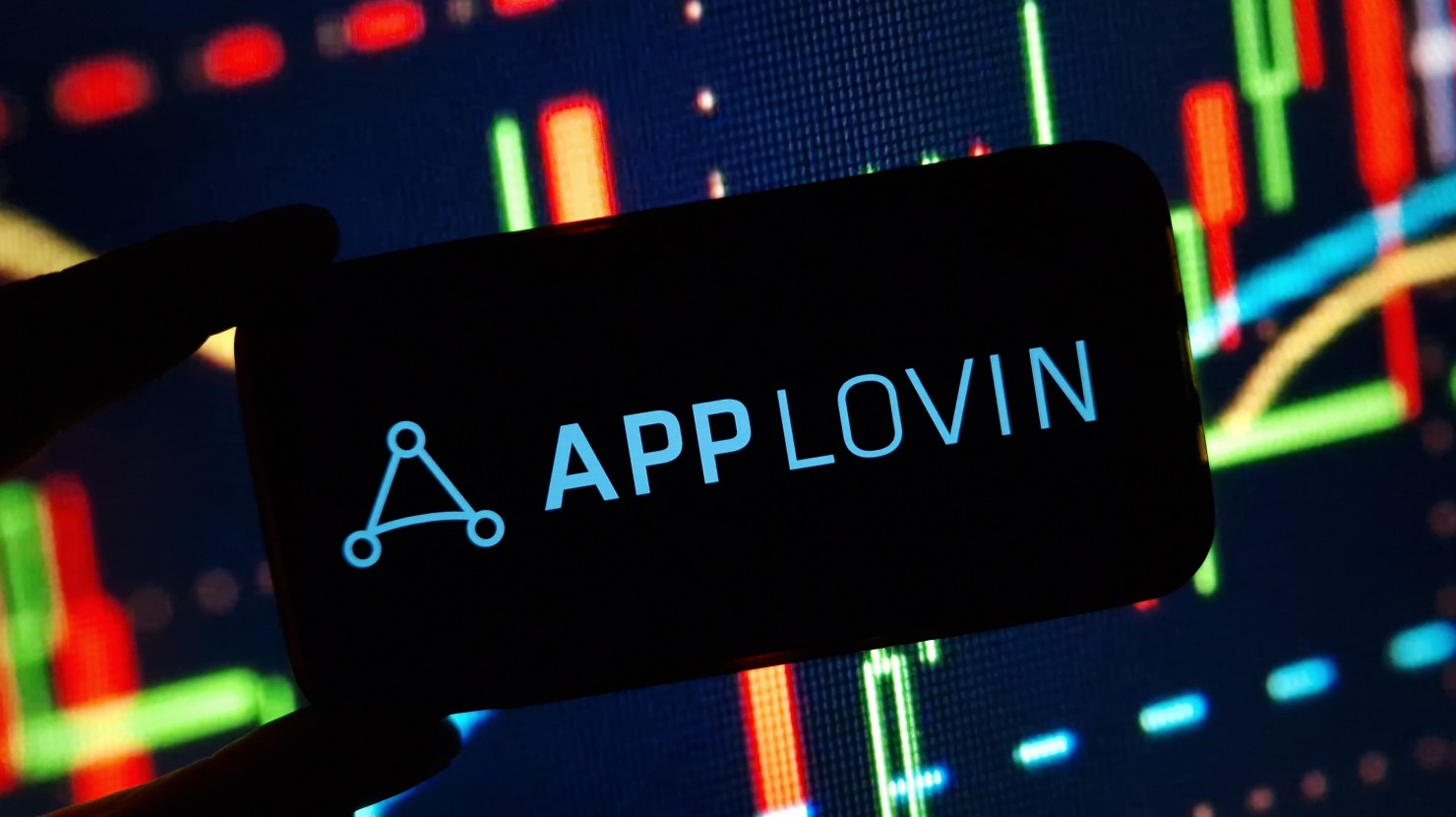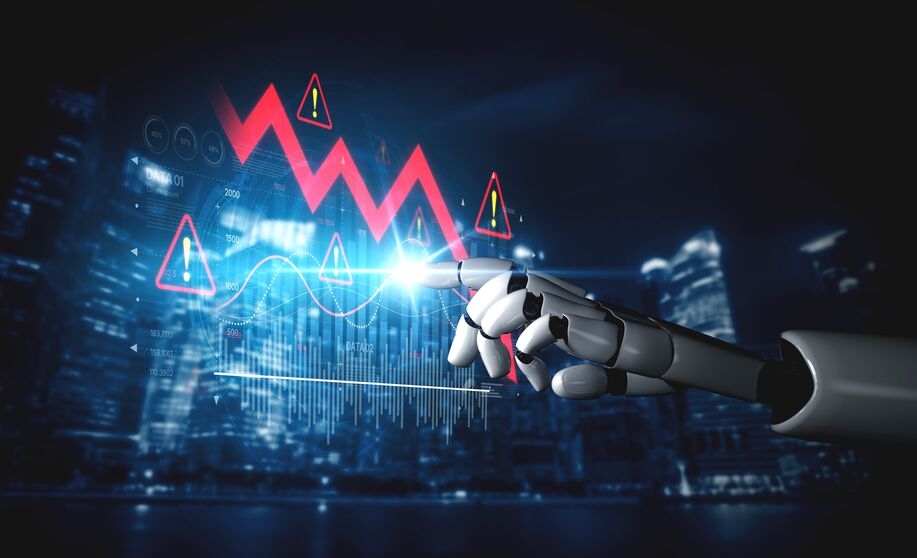The Fortress Portfolio: How Bill Gates Quietly Built a $42B Mission-Aligned Empire
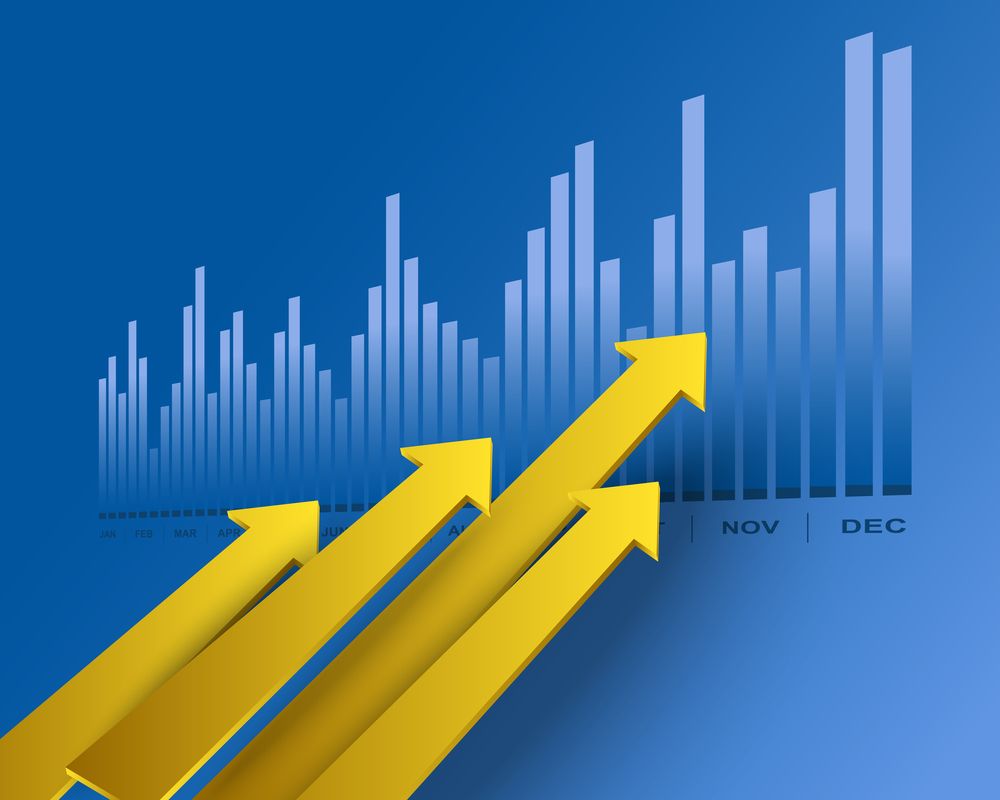
TradingKey - Through March 31, 2025, Bill Gates' portfolio under the Bill & Melinda Gates Foundation Trust held 25 equity stakes with an aggregate market value of $41.81 billion. Gates' portfolio with zero turnover during the quarter despite extremely volatile macro environments and sectoral shifts in international markets reestablished an aged strategy with a basis not in quarterly opportunism but in structural conviction and mission-driven investing.
Portfolio value is exceedingly highly concentrated in top 10 holdings at nearly 96%, an extraordinarily high percentage for institutional norms and a reflection of Bill Gates' belief in a handful of businesses with sustainable cash flows and system relevance.
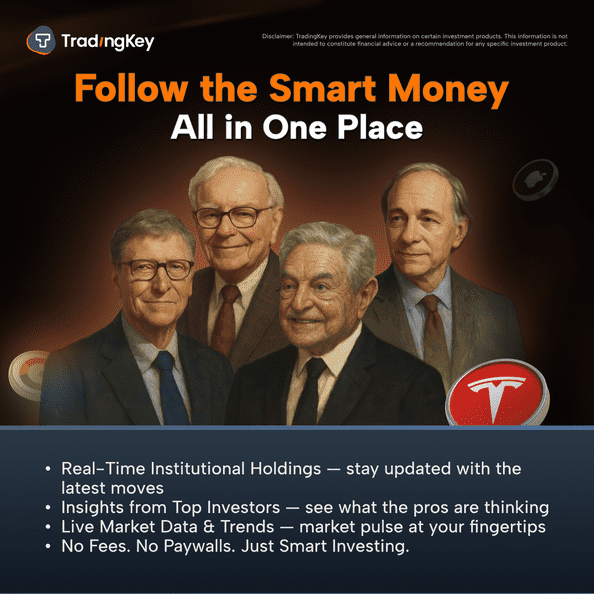
Compared to more frequent traders like Dalio or George Soros, Gates exhibits only so-called endowment-type patience. Decades, not months, are considered when taking such positions. The twin objectives of the Gates Foundation of safeguarding capital and achieving philanthropic permanence mean that choice of investment is exercised with great care so that returns are paired with morals and longevity. With virtually zero exposure to speculative technologies and small caps, such a portfolio is meant to be used for the long haul and not for quick returns.
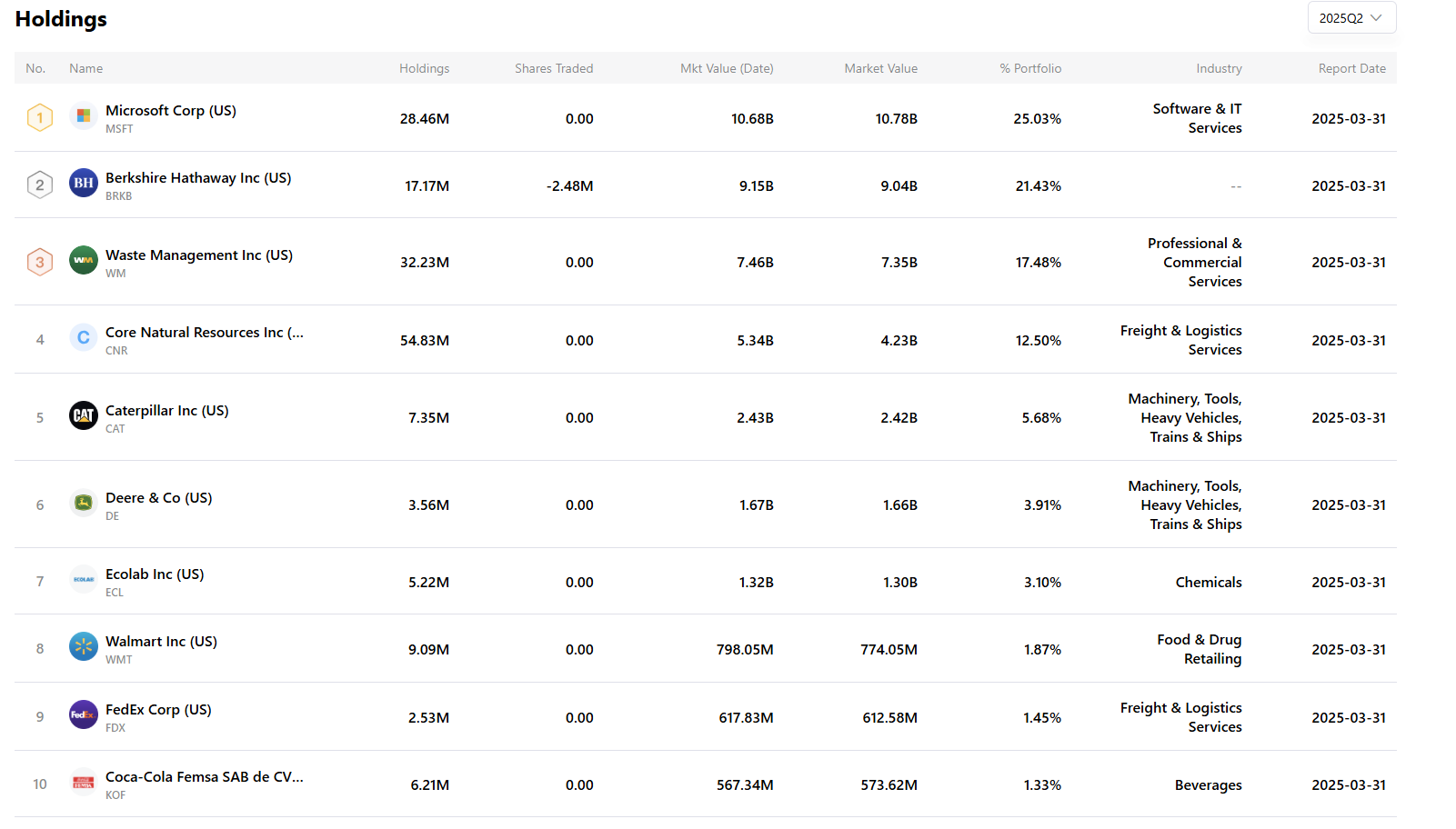
Sector Allocation: Focused on Industrials and Software
Sectoral makeup of Gates' portfolio demonstrates important exposure to key enablers of the economy. Industrials comprise 43.36% of assets, the biggest slice by far, highlighting faith in physical infrastructure, logistics, and real-world operating businesses. These are Canadian National Railway, Caterpillar, and Waste Management, businesses that are engaged in sectors least likely to be disrupted by cyclical shifts of technology or shifting customer demand.
Technologies, where by itself Microsoft takes up the space (25.55%), demonstrates Bill's long-standing belief in the company where he started and its ongoing leadership in the cloud, in AI, and in enterprise software. Financial Services (21.88%) is exclusively represented by Berkshire Hathaway, and it provides Bill with passive ownership of a portfolio of great businesses carefully curated by Warren Buffett.
Consumer Defensive and Basic Materials are small exposures with 3.87% and 3.16% contributions respectively. The lack of significant weight within traditional sectors like Energy, Healthcare, or Communication Services implies a narrow, high-conviction strategy over a balance or market-replicating strategy.
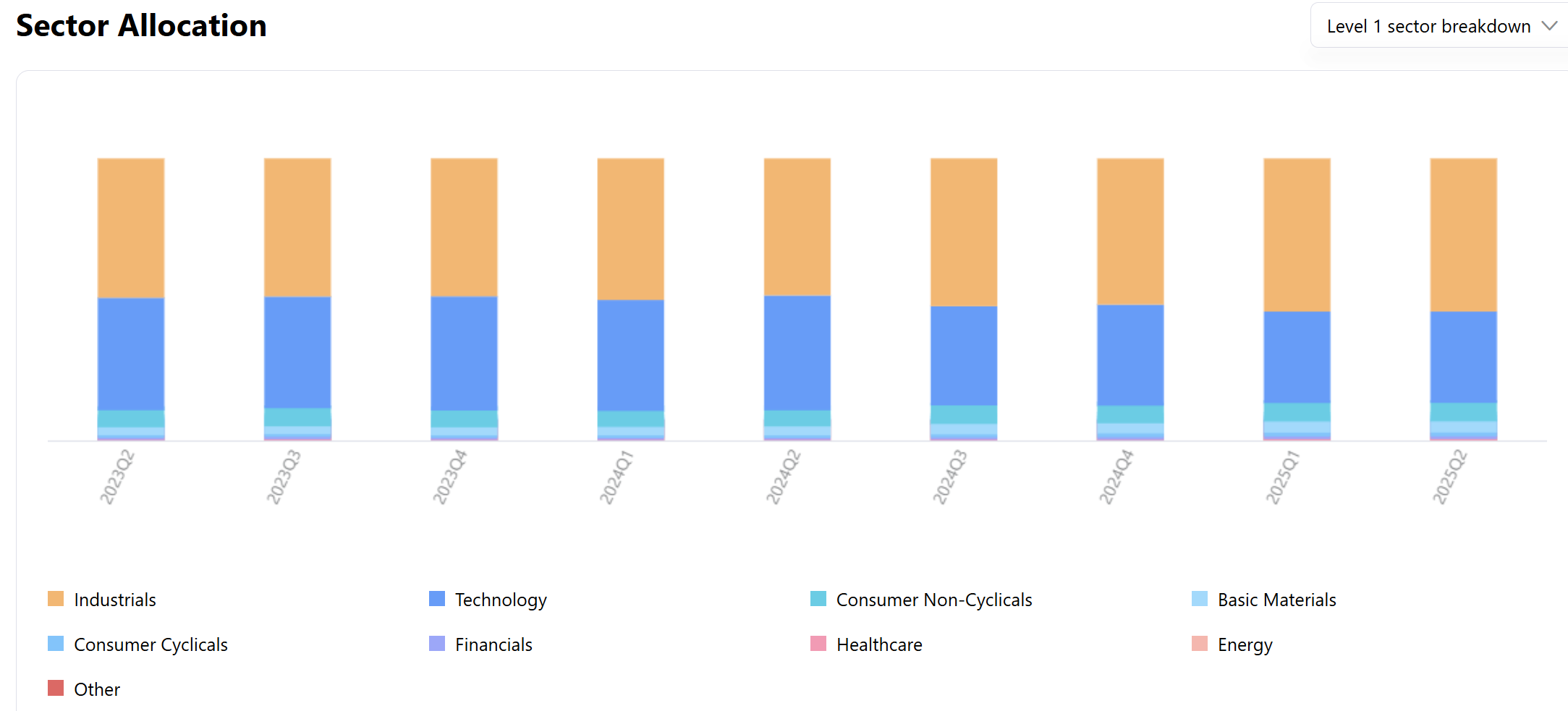
Core Holdings: Microsoft, Berkshire, and Industrial Backbone
Gates' leading holdings continue to be the best of the investment philosophy: long-duration quality. The stalwart continues to be Microsoft ($10.7B, 25.55%), because of historical overlap considerations and its favored role in secular trends such as AI, cyber security, and productivity software. A persistent holding over the decades as valuations rose, symbolizing faith in cash generation and innovation flywheel of the company.
Berkshire Hathaway ($9.15B, 21.88%) provides Gates diversified exposure to a collection of businesses and a large insurance float with Buffett's conservative management. Financial proxy with combined energy, consumer goods, railroads, and finance exposures are also offered by an indirect channel. Canadian National Railway ($7.46B, 17.85%) and Canadian National Railway ($5.34B, 12.78%) provide revenue streams that are proof against inflation and monopolistic features within geographic limits.
Others such as Caterpillar ($2.42B), Deere & Co ($1.66B), and Ecolab ($1.32B) can provide access to cyclical patterns of sustainability and industry too. Stable-demand strong-brands such as FedEx, Coca-Cola Femsa, and Walmart minimize portfolio volatility.
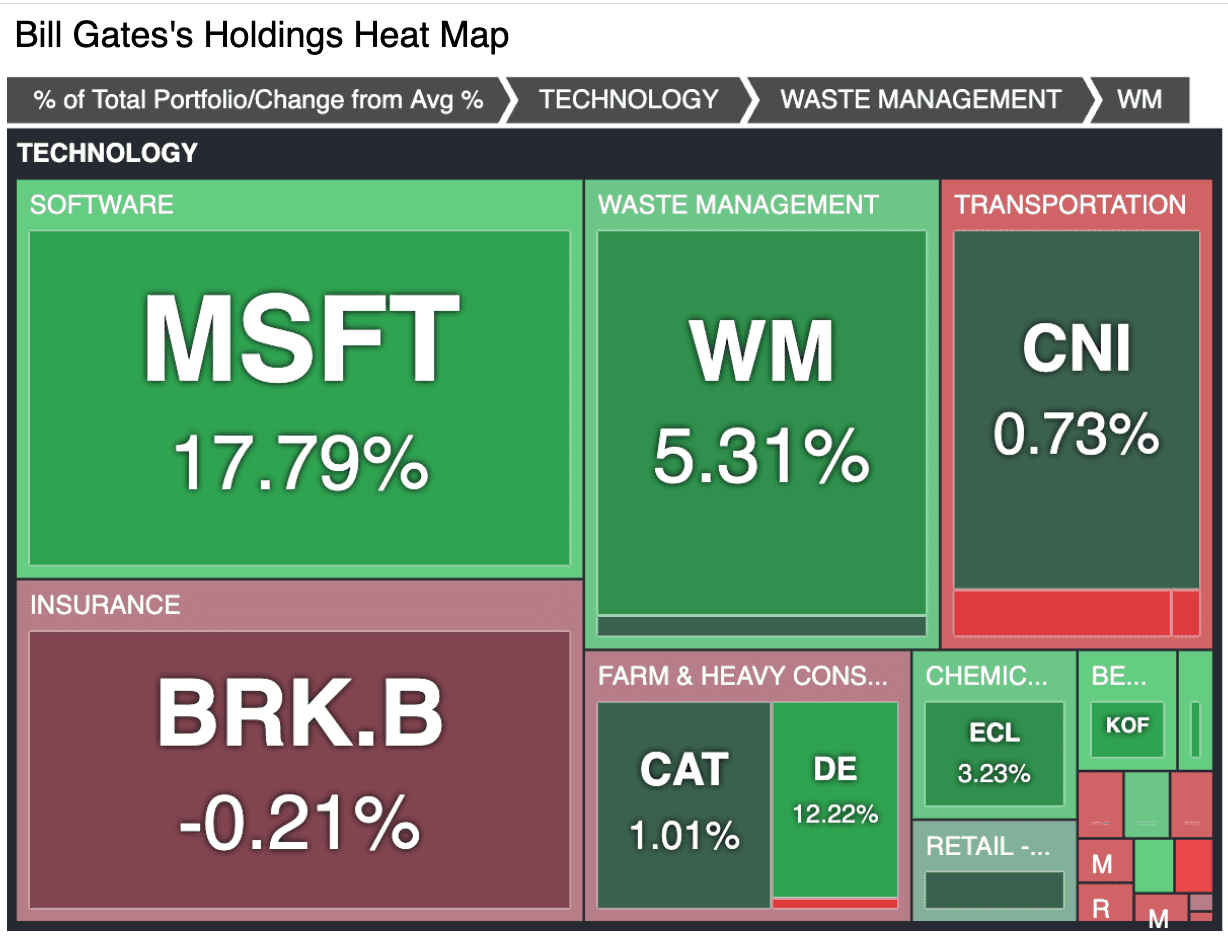
Thematic Focus: Critical Services, Hard Assets, and Non-Cyclical Moats
Gates' portfolio is a roadmap to a post-disruption ground economy. Just as some tech-crunchy investors place bets in AI or biotech tails, Gates places bets in “planetary infrastructure” – waste, water, rail, energy efficiency, and food logistics. These are low-risk-of-disruption businesses, hard assets, and regulatory moats.
Such firms as Ecolab and Waste Management are consistent with Gates' philanthropic focus on sustainability, sanitation, and public health. The bias in the portfolio towards machinery and transport, through Canadian National, Caterpillar, and Deere, complements these goals by promoting farm efficiency and zero-emission transport.
Most distinctively, there are no pure large health care, fossil fuel, or military producers, consistent with the fund's moral sift for investees, consistent with the foundation's global mission. There is also a bias for U.S.-domiciled issuers with worldwide revenue exposure, with geographic dispersion but with no concomitant complexity of regulatory and political analysis.
Performance: Consistent Outperforming Relative to the Market
Since March 31, 2025, Gates Foundation Trust portfolio generated robust but humble returns of approximately +8.7%, outperforming S&P 500's +6.2%. The outperformance was attained with far lesser volatility, thanks to the high-quality and low-beta characteristic of the portfolio. The biggest contributor was Microsoft, extending its rally owing to enterprise requirements for AI and pickup for Azure's market share.
Waste Management and Canadian National Railway contributed positively too, made easier by inflation-linked pricing agreements and higher infrastructure spending. FedEx lagged by virtue of ground segment margin squeeze but is still a key logistics pillar. The healthiness of such performance, amid higher geopolitical risk and volatile interest rates, is testament to Gates' successful low-churn, high-moat strategy of investment.
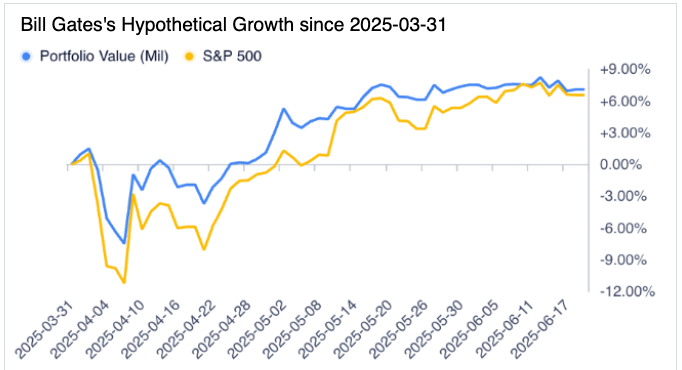
Strategic Lens: Endowment Thinking Meets Capital Discipline
Gates' portfolio demonstrates a long-term stewardship approach. The zero-turnover in Q1 2025 is to be expected, it is a reason to worry. Investing is not merely about writing a check but continuing to place one's faith. The administrative headache is delegated but there are clear and hard-and-fast ethical principles, e.g., refraining from businesses that are involved in negative corporate conduct or environmental stripping.
Long-term involvement by Waste Management and by Berkshire Hathaway and by Microsoft signals approval for reproducible businesses and for partners that are aware of governance. By leadership of industries, by dividend predictability, and by economic moats, Gates reduces the downside risk and sees the mission of the foundation receive steady financial fuel.
This approach offers the portfolio as a case history for mission-oriented endowments, pension funds, or institutional investment clients who favor the long over the short term.
Conclusion: Long-Term, Disciplined, and Dec
Long-Term, Disciplined, and Dec Bill Gates' holding portfolio is a work of disciplined minimalism. Strategically focused with non-wash-loss diversification of intent, it encompasses diversified holdings in software (MSFT), infrastructure (CNI), waste systems (WM), and conglomerate exposure (BRK.B), each holding a defined role within a hard architecture.
For those who require capital preservation, real-assets exposure, and alignment with development goals around the world, there is a sustainability and scale combination that is quite distinct in the portfolio. As everyone else in the remainder of the world chases down cycles of innovation hype, there is a fundamentals-first investing course in Gates' portfolio. Not only is it built to last but it’s built to do good and do well.




